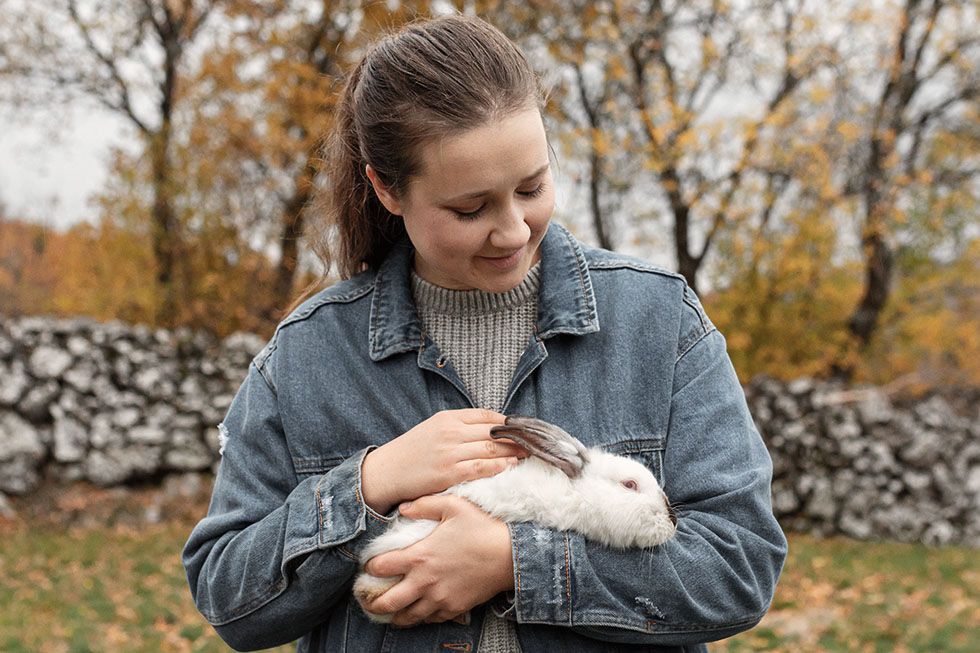
©2025 Village Veterinary Clinic. Veterinary Websites and Marketing by Websy Vet.
Privacy Policy | Terms and Conditions

When your dog or cat isn’t quite acting like themselves — maybe skipping meals, hiding more than usual, or developing a new lump — it can be easy to assume it’s nothing serious. However, at Village Veterinary Clinic, serving Burke, Fairfax, Fairfax Station, and nearby communities, we want you to know that subtle changes can sometimes point to something that deserves attention. Cancer doesn’t always show obvious signs, especially in pets (cats in particular) who tend to mask discomfort.
Cancer in pets can stay quiet for a long time. Symptoms are often vague, or they look like common day-to-day issues such as fatigue, picky eating, or slowing down with age. The American Veterinary Medical Association explains that the earlier cancer is identified, the more treatment options are available and the better the outlook for both comfort and quality of life. Early evaluation gives your veterinarian a chance to act before the disease progresses.
Our team at Village Veterinary Clinic prioritizes wellness exams and routine screening for pets in Burke, Fair Lakes, South Riding, Annandale, Springfield, and surrounding areas. These appointments are not “just a checkup” — they are how we spot changes while they’re still manageable. If you’re concerned about a new sign you’ve noticed at home, please call us at (703) 978-8655 so we can help guide you on next steps.
It’s important to stay alert. These are common early warning signs of possible cancer in pets:
If you notice any of these signs in your dog or cat, it doesn’t automatically mean cancer. But it does mean we should see them. The safest plan is to schedule a visit with our Wellness & Preventative Care team so we can evaluate your pet in person and let you know if further testing is recommended.
During a screening exam or wellness visit at Village Veterinary Clinic, we do more than a quick look and listen. We take the time to examine your pet from nose to tail and talk through any changes you’ve noticed. A cancer-focused screening may include:
If needed, we’ll talk about next steps: monitoring, treating, or referring to a specialist. You’re never alone in that process. Our goal is to help you make informed, compassionate decisions for your pet.
You are your pet’s daily advocate. Small habits at home can make a big difference in catching problems early:
If you ever feel unsure — even if the change seems “small” — you can always call Village Veterinary Clinic at (703) 978-8655 . We would much rather check a concern early than wait and wish we had seen your pet sooner.
Please contact us right away if you see:
When you come in, here are helpful questions to ask your veterinary team:
This kind of open conversation is especially important for aging cats and dogs, who may also need mobility support, comfort medicine, or end-of-life planning. Our doctors can guide you through options with respect and compassion through our Pet Hospice & Euthanasia services when appropriate.
Cancer risk increases with age, so senior wellness is not something to postpone. A quiet, older indoor cat in Springfield or Annandale deserves the same careful attention as an active senior Labrador in Lorton, Chantilly, Herndon, or Centreville. That’s why ongoing exams, blood panels, and (when indicated) imaging are so valuable for pets in and around Burke, Fairfax, and Fairfax Station.
At Village Veterinary Clinic, our Wellness & Preventative Care approach is designed to look for developing health issues early — including possible warning signs of cancer — and create a plan that supports your pet’s comfort, mobility, and quality of life at every stage.
You do not need to wait for a crisis to act. Booking a wellness exam or cancer screening gives you answers, and it gives your pet the best chance at early detection. Our team is here for pets across Burke, Fairfax, Fairfax Station, Fair Lakes, South Riding, Falls Church, Merrifield, Alexandria, Annandale, Springfield, Lorton, Chantilly, Herndon, Centreville, Clinton, and the surrounding areas.
Call Village Veterinary Clinic today at (703) 978-8655 to schedule a visit with our Wellness & Preventative Care team or ask about screenings if you’ve noticed any changes in your pet. Your attention, plus timely veterinary care, can make a real difference.



©2025 Village Veterinary Clinic. Veterinary Websites and Marketing by Websy Vet.
Privacy Policy | Terms and Conditions